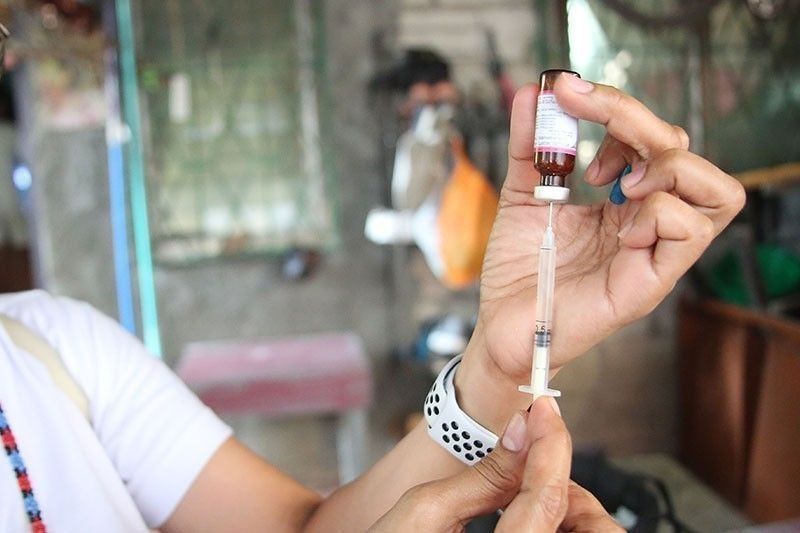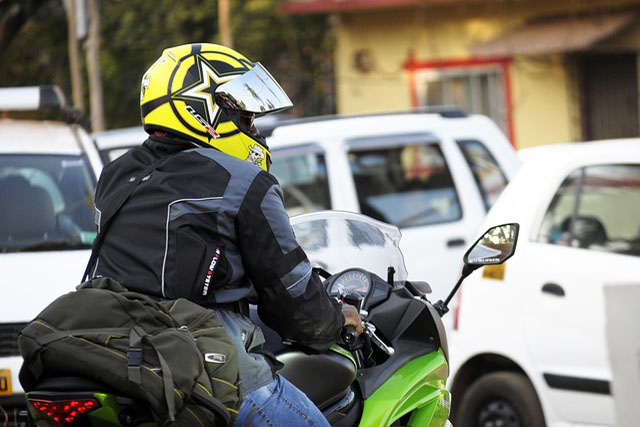DOH urges vaccination as measles, pertussis cases rise

MANILA, Philippines (Updated 4:50 p.m.) — The Department of Health (DOH) on Thursday called on the public to get vaccinated as cases of measles, rubella and pertussis increase.
The DOH urged the public to get their free measles, mumps and rubella (MMR), and tetanus, diphtheria and pertussis (Tdap) vaccines at their local health centers.
The health department said that its Public Health Emergency Operations Center (PHEOC) is intensifying activities to contain the measles outbreak through vaccination, micronutrient supplementation, community engagement, and risk communication.
The World Health Organization earlier raised alarm at the rapid spread of measles, with over 306,000 cases reported worldwide last year—a 79% increase from 2022.
In the Philippines, 569 measles and rubella cases have been recorded as of February 24. All regions, except Bicol and Central Visayas, have reported an increase in cases in the past month.
Between February 11 and 24, 163 new cases were logged, representing a 3% rise compared to the previous two weeks.
“Epidemiologic profile shows that those under five years of age and who are unvaccinated are the most affected,” the DOH noted.
Measles, locally known as “tigdas,” is a highly contagious disease that primarily affects children. Symptoms of measles include high fever, cough, runny rose and a body rash.
Rubella, also known as German measles, is also a contagious disease caused by a different virus than measles. It typically causes a mild illness with symptoms like low fever, sore throat and a rash
Both spread easily when an infected person coughs or sneezes. However, measles and rubella can be prevented with the MMR vaccine.
The DOH aims to vaccinate at least 90% of the high-risk population, particularly children aged six months to 10 years, to control measles transmissions. In 2022, immunization against measles stood at 69%.
Experts attribute the rise in vaccine-preventable diseases to gaps in vaccination coverage and disease surveillance, and increased mobility following the relaxation of COVID-19 restrictions.
In the Philippines, the highly politicized Dengvaxia controversy eroded public trust in the government’s immunization programs. This not only discredited the anti-dengue vaccine, but also sowed doubt on other vaccines that protect against life-threatening diseases.
Rise in pertussis cases
Pertussis, also known as whooping cough, is another vaccine-preventable disease experiencing a resurgence.
According to the DOH, 453 cases of pertussis have been reported in the first 10 weeks of 2024.
The Philippines saw a significant drop in pertussis cases during the peak of the pandemic—only seven in 2021 and two in 2022 for the first 10 weeks. In 2019 and 2020, 52 and 27 cases were logged in the same period, respectively.
The local government of Quezon City declared on Thursday a pertussis outbreak. Twenty-three cases of pertussis have been reported in the city since the start of 2024, including four deaths of infants.
“We will do whatever it takes to curb the spread of this disease. We are mobilizing our own resources towards procuring the needed vaccines to keep our children safe, until such time as the DOH supply arrives,” Quezon City Mayor Joy Belmonte said.
Pertussis causes flu-like symptoms such as mild fever, runny nose and cough for seven to 10 days after exposure. The cough, in typical cases, will develop into a characteristic hacking cough.
While treatable with antibiotics, prevention through vaccination is highly recommended.
- Latest
- Trending




























